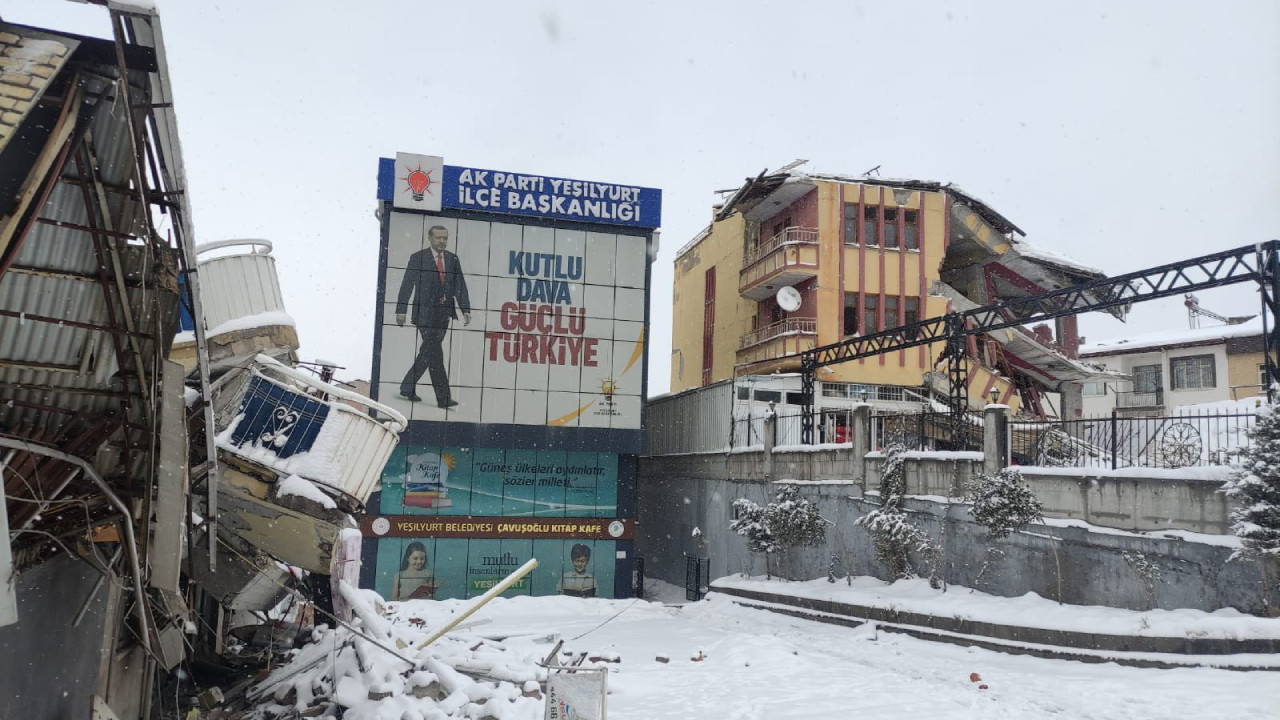Turkish President Recep Tayyip Erdoğan on Feb. 11 announced that universities will have remote classes for the Spring 2023 term, as dormitories belonging to the state-run Credit and Dormitory Institution (KYK) will be allocated to earthquake victims.
“We will use the dormitories of all our universities belonging to the KYK for (quake victims). Universities will have remote education and hopefully we will use the dormitories as guesthouses,” Erdoğan said, while speaking in the quake-hit Diyarbakır province.
“Hopefully, we will finish the rescue work quickly and not leave any of our citizens under the rubble dead or alive. We will complete the construction and restoration works within a year (in quake-hit provinces)” Erdoğan added.
The move to have online education for universities immediately stirred a huge reaction on social media with people pointing out the lack of planning of the government in the face of such a disaster.
Academics and students demanded hotels, vacant residences and guesthouses to be used to house quake victims instead of dormitories. They said the first thing that comes to government officials’ minds is forgoing education in a disaster.
There are also concerns that the move will make the youth’s mobilization difficult for the opposition’s election campaign against the government.
Slamming the decision, main opposition Republican People’s Party (CHP) leader Kemal Kılıçdaroğlu said “Don’t you dare to close the schools, don’t. The mental health of our youth has suffered during the Covid-19 pandemic. Let’s not do more harm to our young people. We have only our youth left.”
Sakın okulları kapatmayın, sakın. Covid sırasında gençlerimizin ruh sağlığı zarar gördü. Gençlerimize daha çok zarar vermeyelim. Sakın. Elimizde bir tek gençlerimiz kaldı.
— Kemal Kılıçdaroğlu (@kilicdarogluk) February 11, 2023
“Switching to online education will increase trauma and loneliness, especially for university students who experienced the earthquake. There are studies on this effect after the pandemic, now the situation is more severe,” CHP Poverty Solidarity Office head Hacer Foggo said, adding that there is insufficient online education infrastructure, as well as students without access to the internet and digital inequality in the countryside.
Online eğitime geçmek başta depremi yaşayan üniversite öğrencilerileri olmak üzere travmayı, yalnızlığı artıracak. Pandemi sonrası bu konuda araştırmalar var, şimdi durum daha ağır. Uzaktan eğitim altyapısı yetersiz, erişimi olmayan öğrenciler ve kırsalda dijital eşitsizlik var.
— Hacer Foggo (@hacerfoggo) February 11, 2023
As of Feb. 11, some 21,043 people have yet lost their lives, and 80,097 others have been injured in two major earthquakes that struck southeastern Turkey on Feb. 6 at magnitudes of 7.7 and 7.6. Demolished buildings has been yet recorded as 6,444.
Some 13.5 million people have been affected in 10 provinces, in an area spanning 1,000 square kilometers.
Source:Duvar English



